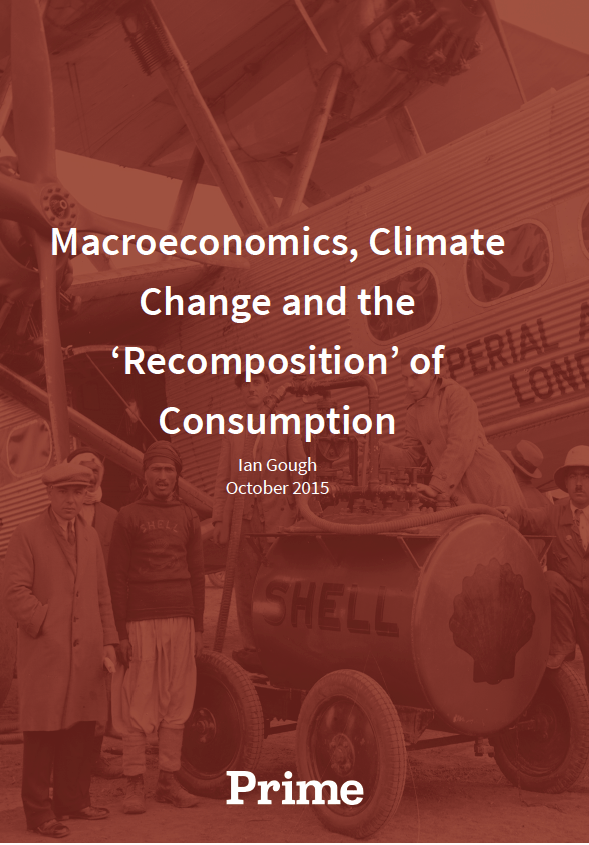Almost all necessities are high carbon, while most ‘luxuries’ emit lower than average greenhouse gases (GHGs). What are the policy implications?
It will not be possible for the rich world to combat climate change, writes Ian Gough in a new PRIME e-publication, without also addressing its consumption.
Macroeconomic policy should be evaluated, he says, and devised according to sustainability criteria alongside economic and social criteria. Economic goals whether growth of GDP productivity or competitiveness, should not trump equity/justice or sustainability. But nor should environmental goals trump social goals. The urgent challenge addressed in this PRIME e-publication is to develop a macroeconomic framework that supports ‘eco-social’ policies to pursue both goals simultaneously.
Just and sustainable macroeconomic planning should take into account two policy dimensions: the emissions intensity of different items of consumption, and the necessitousness of these items. Ways of measuring both of these are proposed.
When personal consumption in the UK is analysed in this way, an awkward policy dilemma immediately appears: almost all necessities are high carbon, while most ‘luxuries’ emit lower than average GHGs. Transport is also high carbon and comprises both necessary spending given current infrastructure and luxury spending.
Thus a radical macroeconomic framework needs to endorse and devise new ‘eco-social’ policies to serve both justice and sustainability goals, alongside income redistribution and public social consumption. Three approaches are suggested: taxing high-carbon luxury consumption, variable pricing of high-carbon necessities, and rationing carbon.
To read Ian Gough’s essay in full, click here.
Ian Gough is Visiting Professor, CASE (Centre for the Analysis of Social Exclusion), LSE; Associate, Grantham Research Institute on Climate Change and the Environment, LSE; and Emeritus Professor, University of Bath.







